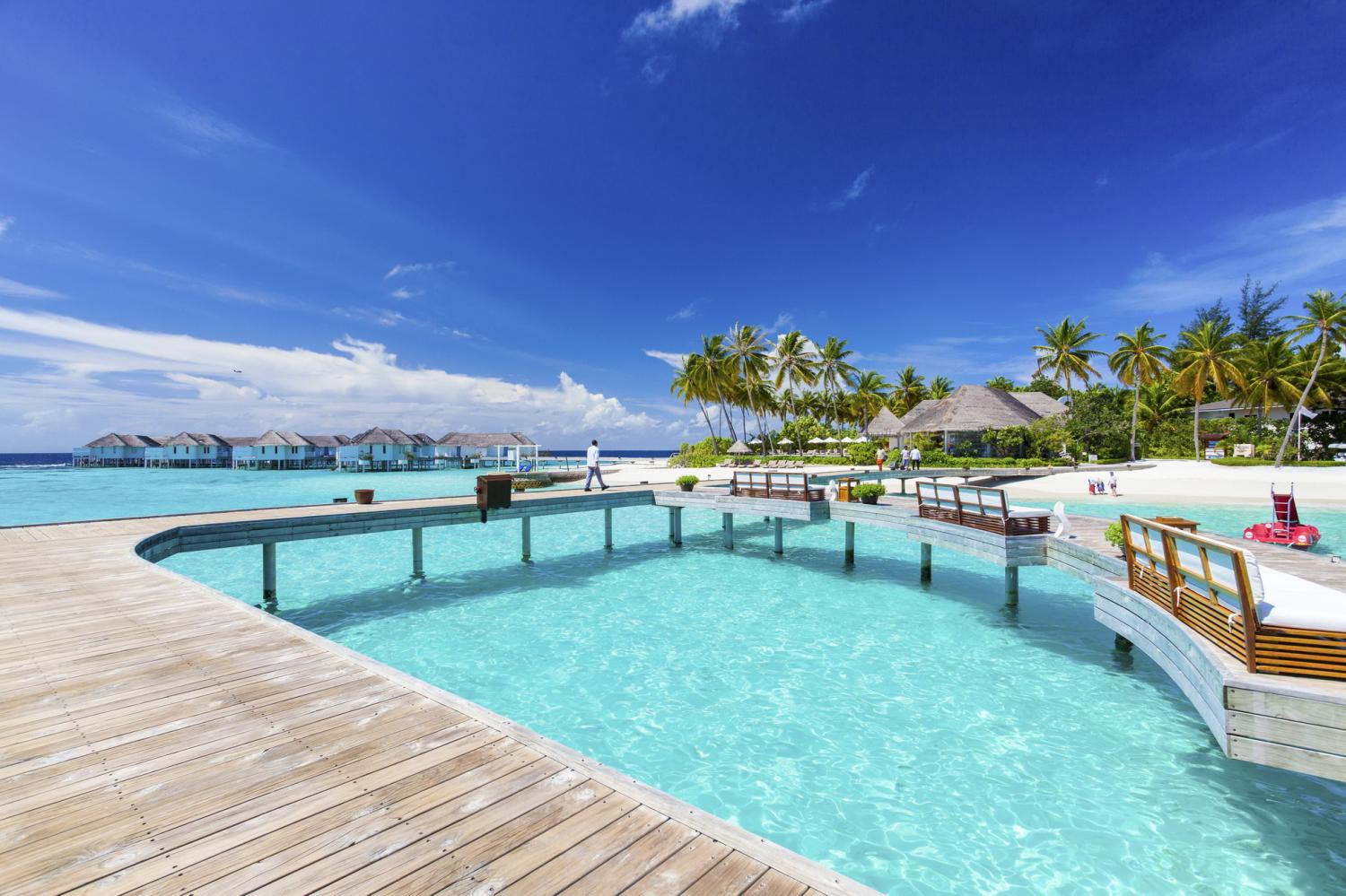
While Thailand is speeding up a reopening plan this month, Thai hotel companies that own properties in the Maldives are shedding light on the first-hand experience of the Indian Ocean country's challenges since reopening on July 15.
The Maldives was the first tourism-led nation to reopen for international tourists with hassle-free entry and no testing requirements or mandatory quarantine.
After allowing tourists to visit without testing results for less than two months, a spike in the number of cases from tourists prompted the government to tighten the restrictions by requiring negative test results 72 hours before arrival from September onwards.
Ronnachit Mahattanapreut, senior vice-president for finance and administration at Central Plaza Hotel, said the company has two hotels in the Maldives: Centara Ras Fushi Resort and Spa Maldives, previously set to reopen in November, and Centara Grand Island Resort and Spa Maldives, which will resume service in December.
Mr Ronnachit said the decision to reopen properties is based on tourism demand, with the company comparing the operating costs of two models, either remaining closed or reopening for guests.
After deciding to revive business there, booking trends spelled out a different scenario from the pre-pandemic period.
"Demand from the Chinese market, previously our main target, remains soft because the Chinese government is actively promoting domestic tourism," Mr Ronnachit said. "Stronger bookings came from Europe."
He said travellers from Europe and the Middle East will be the majority in the islands for a long time, especially the niche market with high purchasing power.
The geography of the Maldives, where hotels are separately located on different atolls and have no quarantine requirements, is another factor in attracting tourists to the country.
Mr Ronnachit said that if tourists can pass the screening test on arrival, they are considered safe and do not need to undergo quarantine.
While the country does not provide specific tourism safety standards like the Safety and Health Administration (SHA) guidelines in Thailand, hoteliers have to comply with regulations from the Maldives' Health Ministry.
Mr Ronnachit said Centara hotels have to prepare high levels of hygiene at properties and train hotel staff on handling infections.
With regard to changes in the market landscape, Thomas Weber, general manager of Dusit Thani Maldives, shares a similar viewpoint.
As Asian nations have mostly closed down international travel, bookings at properties by Asian guests got cancelled too.
"From August onwards our main markets in Asia became clearly unable to travel this year, and it is still very unsure when they will travel to the Maldives again in 2021," Mr Weber said.
At present, the majority of arriving passengers are from the Middle East, Russia, the US and Europe.
Mr Weber said the rest of the markets are eagerly waiting for their governments to allow tourists to travel internationally after borders to the Maldives were opened.
Alexandre Glauser, general manager of Amari Havodda Maldives, said that in the first few weeks after resuming operations on Oct 1, the resort is seeing encouraging signs with most reservations coming from Germany and Russia, as citizens from those countries are looking to extend their summer season.
At the moment, occupancy levels are over 30% and there's an increase in shorter lead-time enquiries from short-haul markets like India.
Mr Glauser said Amari has set up an in-resort Covid-19 PCR test facility for guests originating from countries and territories that require the presentation of test results before returning home.
To ensure the safety of all guests, the resort set aside one of two overwater villa wings as an isolation area for guests who test positive upon arrival.
